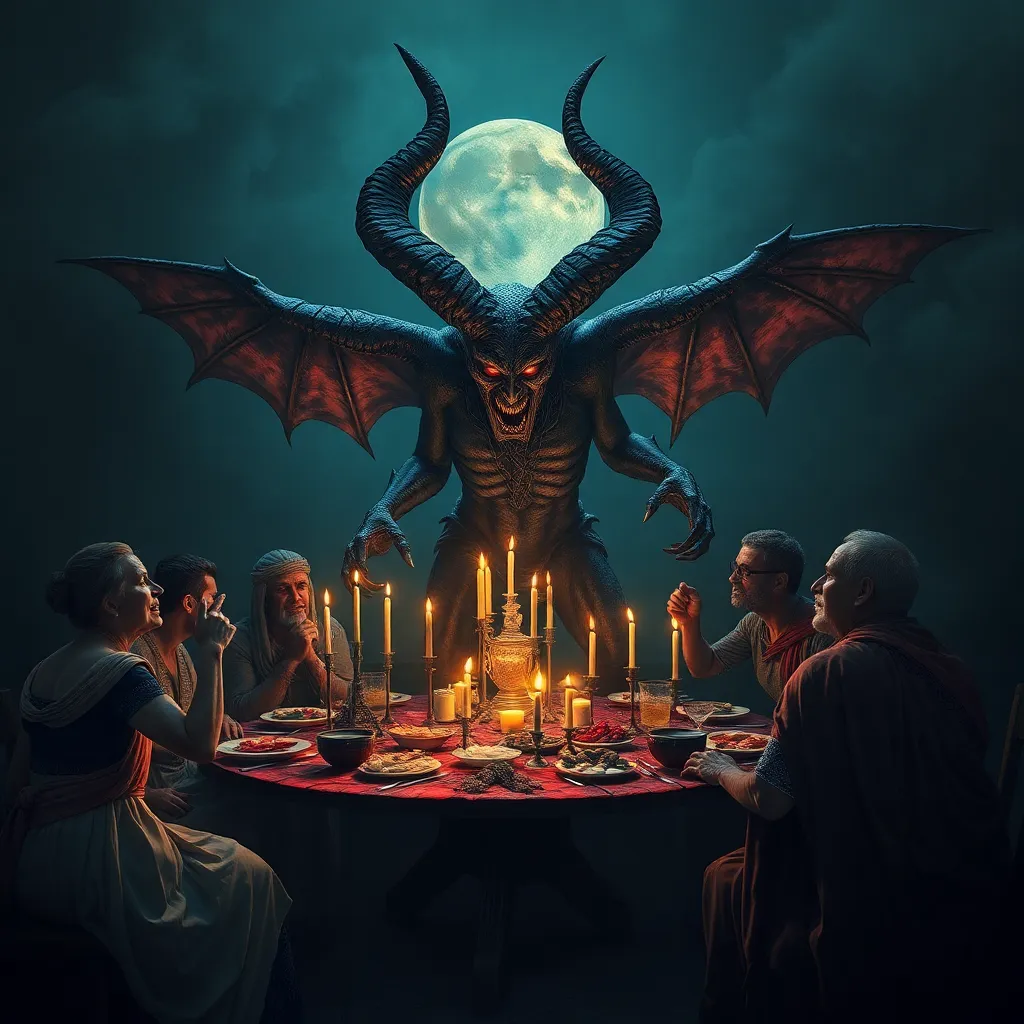Empusa’s Feast: Examining the Demon’s Role in Ancient Greek Folklore
I. Introduction
In the vast tapestry of Greek mythology, few figures are as intriguing as Empusa. This demoness, often associated with seduction and danger, plays a crucial role in the folklore of ancient Greece. Empusa embodies the fears and fascinations surrounding the supernatural, illuminating the ways demons were perceived in ancient societies. This article aims to delve into the characteristics of Empusa and her cultural impact, exploring her origins, physical descriptions, folklore roles, and modern interpretations.
II. The Origins of Empusa
Empusa first emerges in ancient texts, where she is often described as a shape-shifting demon. One of the earliest references to her can be found in the works of Homer, who portrays her as a servant of the goddess Hecate. This connection highlights her role in the underworld and her association with magic and the supernatural.
Furthermore, Empusa is linked to other mythological figures, such as Lamia and Mormo. Lamia, known for her child-eating tendencies, shares similar characteristics with Empusa, suggesting a thematic connection between these figures as embodiments of female monstrosity. Over the centuries, Empusa’s character has evolved, reflecting changing societal attitudes towards women and the supernatural.
III. Empusa’s Physical Description and Attributes
Empusa is often depicted in ancient art and literature as a seductive figure with both alluring and monstrous qualities. In Ovid’s Metamorphoses, she is described as having one leg made of brass and the other of a donkey, symbolizing her dual nature as both enchanting and grotesque.
- Symbolic Meanings: Her appearance serves as a metaphor for the duality of attraction and repulsion, embodying the fears associated with female sexuality.
- Variations: Different sources portray Empusa with varying attributes, showcasing her shape-shifting abilities and complex identity across regions and eras.
IV. Empusa’s Role in Folklore and Mythology
In ancient Greek stories, Empusa’s main function as a demon is to seduce and prey upon men, often leading them to their doom. Her interactions with other supernatural beings, such as Lamia and Mormo, highlight a network of female demons that share similar themes of danger and temptation.
The recurring themes of seduction and danger associated with Empusa suggest that she serves as a cautionary figure, warning against the perils of succumbing to temptation. Her stories often reflect societal anxieties surrounding women and sexuality, positioning her as both an object of desire and fear.
V. Cultural Significance of Empusa
Empusa’s character had a profound impact on ancient Greek society’s understanding of demons and the supernatural. She represents the complexities of women’s roles within mythology, often embodying societal fears regarding femininity and power.
- Impact on Society: Empusa’s allure and danger contributed to the demonization of female figures in folklore, reinforcing patriarchal narratives.
- Artistic Influence: Empusa has inspired numerous works of art and literature, showcasing her lasting legacy in cultural contexts.
VI. Empusa in Modern Interpretations
In contemporary literature and media, Empusa has been reimagined in various ways, often as a symbol of female empowerment or as a cautionary figure representing the complexities of desire. Modern interpretations allow for a more nuanced understanding of her character, moving beyond traditional depictions of monstrosity.
When compared to other mythological figures, Empusa holds a unique position that resonates with themes of transformation and identity. Her legacy continues to influence popular storytelling, reflecting ongoing conversations about gender and power.
VII. Thematic Analysis of Empusa’s Feast
The concept of feasting in mythology often symbolizes abundance, temptation, and the consumption of desires. Empusa’s feast can be interpreted as a metaphor for the dangers of yielding to temptation, where indulgence leads to destruction.
- Symbolism of Feasting: In many cultures, feasts are associated with celebration and community; however, in Empusa’s context, they represent the darker aspects of desire.
- Moral Lessons: The stories surrounding Empusa often impart moral lessons about the consequences of unchecked desires and the perils of seduction.
VIII. Conclusion
Empusa occupies a significant place in ancient Greek folklore, embodying the complexities of human desires and societal fears. Her role as a demoness reflects the cultural narratives of her time, highlighting the intersections of femininity, danger, and power.
In today’s cultural landscape, Empusa remains relevant, serving as a reminder of the enduring impact of mythological figures on contemporary discussions about gender and psychology. Preserving these narratives is crucial for understanding human nature and the values that shape our societies.




